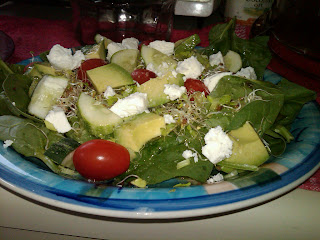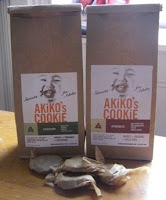
After serving 10 years as the judge director of the San Fransisco spirit competition, beloved American spirits and cocktails journalist and authority, Paul Pacult, is making a foray of his own into designing the Ultimate Beverage Challenges (UBC). This set of three competitions focused on spirits, cocktails, and wine will use systems developed over Paul’s diverse career to ensure thoughtful results that can serve as true industry standards. Despite all of the medals and points flying around these days, many awards continue to be based on marketing promotions, inside connections, a single subjective opinion, or a collective opinion of an unqualified group. Paul along with fellow founders David Talbot and Sue Woodley have organized a group of experienced and unbiased judges who will endure two to three day tasting sessions for each category and judge products blindly multiple times. After a lifetime of experience on all ends of the alcoholic beverage industry, Paul brings his knowledge, insight and passion to these competitions to create a dependable and long overdue system for determining the best of breed.
Interview with Paul Pacult by Tess Rose
Tess Rose: What made you decide to pursue the world of beverages professionally?
Paul Pacult:It was completely by accident, I wish I could tell you there was a grand plan but it was anything but. I started a landscaping business and [through that] met the famous Sonoma County wine maker Rod Strong in1973. After I landscaped his new winery in Windsor CA, I stayed on to work for him, I ended up staying 10 years. Having the understanding from the production side has made me a more sensitive judge and more demanding critic. Towards the end of that period with Rod, who was a prolific writer and believed in communication with customers, he asked me to ghost write for him to get newsletters out. The response was so favorable that he encouraged me to write professionally. I sent a few articles off to magazines and got accepted. It was such a kick seeing my work out there, people reading and commenting on it. I took Rod’s advice and moved to New York, it was the thing to do. To me New York is the center of the world.
I wrote for a bunch of magazines and also worked at
Morrell and Company. Working there gave me phenomenally good experience, I really learned a lot. I left Morrell to consult and write and I opened up a wine school called Wine Courses International. A bunch of New York Times people were taking my advanced course and they asked if I wanted to write for them. Of course I wanted to write for the New York Times! They wanted me to write about Scotch Whisky, but I didn’t know anything about Scotch and I didn’t even like it. But that’s what they wanted, so they sent me to Scotland to do 5000 words on Scotch. I was so excited as soon as I hit Scotland, even though it was very impolitic to write about spirits art that time. I wrote 10000 words and thought they would ask me to slash and burn it down to 5000, but they loved it and wanted to print all of it. 28 pages, it was a sensation. Times phones were ringing off the hook. 2 weeks after it came out they hired me to do 3 more for 1990, and within two years I was the spirits guy in America. That’s how I got into the spirits thing…it’s all the fault of the New York Times.
TR: How did The Spirit Journal come about?
PP: Everyone was sending me their products to write about it, I was inundated with spirits and so I started the
Spirit Journal. Robert Parker convinced me to do a newsletter rather than a magazine so it could be independent with no advertising. The spirits industry needed something to see what was coming, so I review things 2 months before they hit the market place and I have established myself as a fair, unbiased evaluator through the journal. That’s been the platform for UBC. I hope people trust the fact that I am independent. Sue and I make no money from journal, it pays for itself, but no profit. That’s ok, people understand we keep it pure and unadulterated, people have responded to that. When I think I can’t taste anymore, the next day someone will call and say thanks for turning me on to Armagnac, and I think, I can’t stop now. Self perpetuating reality that I have, The Spirit Journal will keep going until the day I die, and so be it.
TR: How did you come up with the idea for the ultimate beverage challenges?
PP: I’ve been a judge in so many different competitions and I’ve always felt that there was a better way to skin the cat. There’s a more quantitative way to judge beverage alcohol than what’s out there. It was import to me not to impose my will on someone else, which would be rude, so I felt it would be better if I owned the competition so I could do what I wanted. I resigned from the
San Francisco Spirit Competition, did a lot of research and came to the conclusion that methodology in beverage competition had not been altered since the 1880s. It was kind of a watershed period for wine and spirits in Europe and competition really took hold in France, Italy and Austria, but since that time there hasn’t been that much advancement in terms of methodology and I felt it was time to bring it into the 21st century.
TR: How does UBC incorporate 21st century methodology?
PP: By making judges more accountable for their findings. It used to be a roundtable discussion and I was always pressing people to be accountable for their choices, I always felt an obligation to the maker or distiller or brewer to give a justification behind the awards. The judges will be held accountable in UBC challenges, they will have to say why they are giving a product a particular score.
Another thing that bothered me about other competitions is that products would only go through one evaluation. The best way to give products a chance to shine is to make sure they go through a couple of times. I think sometimes competitions get overwhelmed with product so they have to rush through, that’s why were taking 3 days. Palates get tired, so one of the things we implemented right way was to have no more than 8 products in a flight and have extended periods of rest between so judges stay fresh and alert. It takes time.
TR: What is the philosophy behind the methodology?
PP: Our whole theme is 3 fold: integrity, method, and accountability. [For the sake of] integrity, I wanted to get the best people possible to be judges. Also, it won’t be held in some cushy hotel but a place that is clinical and perfect for the event. For method, the products will be judged on a multi-staged basis; every product will be judged as fairly as possible, [judges] will not know the prices or what they are tasting ensuring that products are viewed as honestly and independently as possible. The credibility will follow from the thoroughness and honesty of the methodology.
TR: How will the results affect industry professionals like mixologists and restaurateurs beyond marketing?
PP: We’re the new kid on the block, were standing on the shoulders of the other competitions that have come before us. The message is getting across already, it’s all about authenticity, were not doing this to try and get advertising in a magazine, were doing this to give results that will be viewed as the gold standard for the industry. I want to see UBC results looked upon as the one people go to.
TR: Can you elaborate on the cocktail challenge?
PP:The
cocktail contest is getting as much buzz as the other two combined. This is the first time products are actually going to be judged in classic cocktail recipes against each other, I’m curious to see how it will all pan out. Most competitions for cocktails are bartenders submitting new recipes for brands, and that’s good, I enjoy that, but spirits have never been viewed from this angle before: how do they all compare in classic drinks made by professionals, everyone using precise measurements and proper glass-wear? How the products stack up in that environment is new and interesting and I think it’s important to bring in innovations.
TR: Is this event designed to benefit consumers or industry professionals?
PP: Both, my hope is that the consumer sector will take note and look at results on the website and other publications, I’m hoping they will absolutely look at these results as a touchstone for what’s good and what’s a mediocre. In the industry everyone’s clued in already, I think they see the value of what we’re trying to do. Consumers may take a bit longer in all honesty, but we’re in this for the long haul, this is really what I want to do for a long time to come.
TR: Will the event itself be open to consumers?
PP: Consumers will get the chance to attend two events in the fall, one for spirits and cocktails and one for wine. Consumers will be able to come and taste the best of the best. The judging is demanding and we don’t want to interfere with judges’ concentration, so we will only be allowing 10-12 media people to observe without interfering. I think it is really important to let people see what we’re doing. A lot of competitions never allow media or people from the industry to come in and I think the opposite, within reason so the judges aren’t disturbed. It goes back to Obama and transparency, we need to let people observe.
TR: How will the winners be displayed to consumers?
PP: We decided early on not to give medals. They are ubiquitous. If people are going to pay the entry fee they should get back thoughtfully arrived at results. We’re using a 100-point system rather than medals. Chairman’s Trophy is the highest award and there will be one for each category.
TR: What is your proudest professional accomplishment to date?
PP: I’d have to say out of everything, I’m proudest of the independence we’ve maintained with The Spirit Journal. Sue and I started out and said we will never accept advertising or charge people to send us products or charge people for using the results. For 20 years we have absolutely maintained that.
TR: If you weren’t doing this, what would you be doing?
PP: Wow…I just love doing this! I’d probably still be at the winery. I’d somehow be involved with beverage alcohol.
TR: What’s next?
PP: Just continue, keep doing what we’re doing. I feel a real responsibility with UBC and to me it’s really important to get it right so that everybody can look at it and say that it’s the gold standard of competitions. I want to make sure that’s going well, who knows after that. Write paperback novels or something.
Ultimate Beverage Competitions are taking place now at New York’s Astor Center, visit the
UBC website for information on attending the fall galas that will showcase the winners of each competition.


































